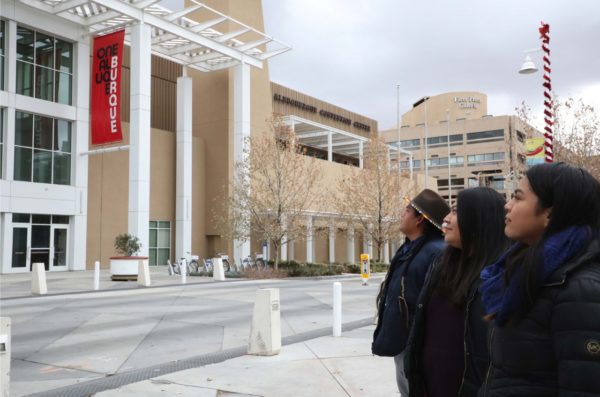
- Details
Tribes strategize during inaugural statewide coalition convening Jan. 30 - 31
ALBUQUERQUE, N.M. — In an effort to ensure an accurate count of Native Americans in New Mexico, one of the nation’s hardest-to-count states, the state’s 23 tribes will convene Thursday and Friday in Albuquerque to strategize, learn and share information during the first-ever tribal statewide collaboration on the U.S. Census.
New Mexico has been labeled the most undercounted state in the union and is considered one of the hardest states to count in the 2020 U.S. Census report, according to an Associated Press analysis of U.S. Census Bureau data. A one percent undercount of the state’s population this decade would result in a $780 million loss of federal funds during a 10-year period, according to estimates. Native people in New Mexico make up about 11 percent of the state's population.
More than 70 people representing the state's tribes will convene at the Courtyard by Marriott, 5151 Journal Center Blvd NE, during the inaugural meeting of the New Mexico Native Census Coalition, a collaboration of tribal organizations, businesses, and nonprofits working toward an accurate 2020 U.S. Census Count.
The All Pueblo Council of Governors, made up the state’s 19 Pueblos, asked the Native American Voters Alliance (NAVA) Education Project to create the Native Census coalition in preparation of the count as far less federal funding for outreach and education was available compared with 2010 allocations, despite the 2020 Census being available online for the first time in history. Many tribes also lack access or adequate access to internet services in New Mexico.
Several tribes did receive part of the $400,000 available from the state Indian Affairs Department to implement strategies for their particular communities and create materials, such videos in their own languages to be played in their health and dental clinics or pledge cards to give out on Valentine's Day to be paired with a treat. Others will have special events in their libraries or community centers.
“So many of our programs from housing to Head Start to health to job training and funding are dependent on the Census so an accurate count is critical,” said incoming NAVA Executive Director Ahtza Dawn Chavez.
In addition to supporting tribes, the Native Census coalition will also offer aid to Urban Indian organizations in New Mexico, including in Albuquerque where there is a significant Urban Indian population. Albuquerque has been listed among the top 10 cities in the nation with a high Urban Indian population. It is also estimated that more than 70 percent of Native Americans now live in urban areas, according to the Census.
The meeting will start at 8 a.m. An agenda is available on the Native Census coalition’s website.
More Stories Like This
Native News Weekly (August 25, 2024): D.C. BriefsNavajo Nation Mourns the Passing of Former Vice President Rex Lee Jim
Deb Haaland Earns Endorsement From Communications Workers of America Local 7076
University Soccer Standout Leads by Example
Two Native Americans Named to Democratic Congressional Campaign Committee's“Red to Blue” Program
Help us defend tribal sovereignty.
At Native News Online, our mission is rooted in telling the stories that strengthen sovereignty and uplift Indigenous voices — not just at year’s end, but every single day.
Because of your generosity last year, we were able to keep our reporters on the ground in tribal communities, at national gatherings and in the halls of Congress — covering the issues that matter most to Indian Country: sovereignty, culture, education, health and economic opportunity.
That support sustained us through a tough year in 2025. Now, as we look to the year ahead, we need your help right now to ensure warrior journalism remains strong — reporting that defends tribal sovereignty, amplifies Native truth, and holds power accountable.
 The stakes couldn't be higher. Your support keeps Native voices heard, Native stories told and Native sovereignty defended.
The stakes couldn't be higher. Your support keeps Native voices heard, Native stories told and Native sovereignty defended.
Stand with Warrior Journalism today.
Levi Rickert (Potawatomi), Editor & Publisher
